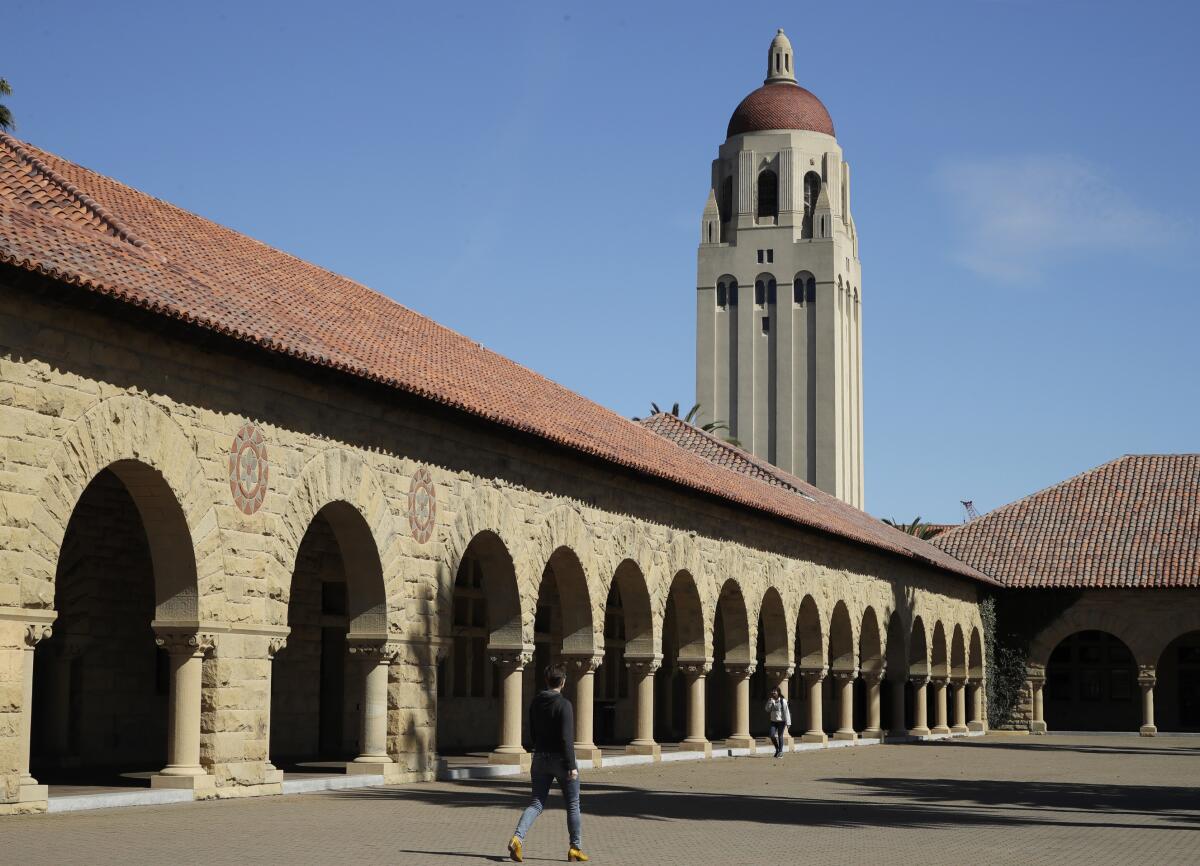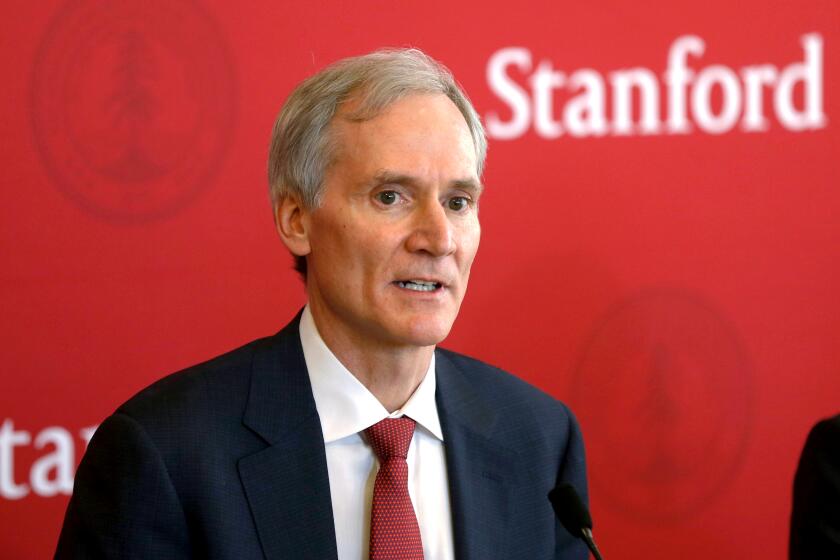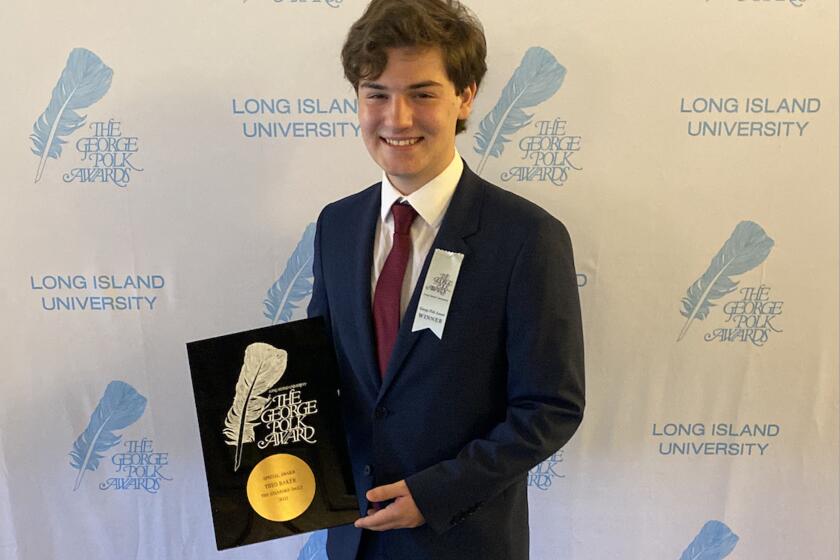Stanford launches search to replace president who resigned amid research controversy

Stanford University formally launched its search for a new president Thursday, announcing its committee members after the recent resignation of its former leader, who was found to have failed to correct errors in his published research.
Marc Tessier-Lavigne stepped down as Stanford president last month, although an independent panel concluded he had not personally engaged in research misconduct and the review found no evidence that he knew the data used in several of his papers had been manipulated. He said in a statement at the time that he was resigning “for the good of the University.”
Stanford’s leadership search comes as UC Berkeley Chancellor Carol Christ and UCLA Chancellor Gene Block also announced they will step down next year — marking a major transition for three of the top universities in the state and nation. Whereas Christ will have served as chancellor for seven years and Block, 17 years, the average tenure of university and college leaders today is about six years, according to the Chronicle of Higher Education.
After a review of allegations found flaws in his scientific articles, Stanford University President Marc Tessier-Lavigne said he will resign.
Current presidents expect to resign within five years, and reasons for leaving include weariness over the aftermath of the COVID-19 pandemic and increasing political polarization in higher education, the Chronicle reported.
Jerry Yang, chair of Stanford’s Board of Trustees, told the university community in a letter that the presidential search will be an “exciting journey” to envision and shape the university’s future.
“More than just finding an individual to serve in that capacity, this is an opportunity for us to collectively shape the future of our university and to help write the next chapter for how Stanford will lead,” Yang said.
Stanford’s provost, Persis Drell, is also resigning this fall as the chief academic officer and chief budget officer. Jenny S. Martinez, dean of Stanford Law School, will succeed her beginning in October and was praised as a “champion of inclusion and a clear and reasoned voice for academic freedom” by interim President Richard Saller.
Meet Theo Baker, the freshman reporter whose stories about suspect research kicked off a chain of events that led the president of Stanford to resign.
In a separate Q&A last month, Yang lauded Tessier-Lavigne and Drell for their leadership, saying they had “transformed this university with forward-looking initiatives” while managing the pandemic. He noted such initiatives as more generous financial aid providing potential free rides to students with family incomes of less than $100,000, more faculty hires and fellowships to amplify scholarship on race and ethnicity, a new community board to revise campus safety practices and the first new school in 75 years, the Stanford Doerr School of Sustainability.
Yang said the 20-member committee, made up of faculty, students, a postdoctoral scholar, staff and trustees, would seek community input through listening sessions within each of Stanford’s seven schools, and also engage with other community members and alumni networks. The university has also created a dedicated email address — presidentialsearch23@stanford.edu — for anyone to share their thoughts, including direct nominations.
The UC Board of Regents has not yet announced search committee members for the UC Berkeley and UCLA chancellor positions.
More to Read
Sign up for Essential California
The most important California stories and recommendations in your inbox every morning.
You may occasionally receive promotional content from the Los Angeles Times.













